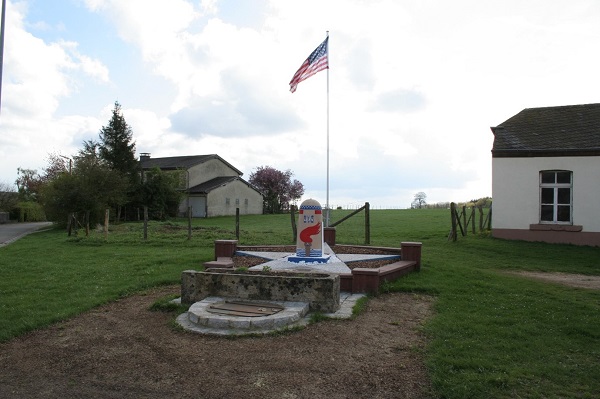 Credit: David Heal
Credit: David Heal
Chronicle.lu has teamed up with local author and tour guide David Heal of Luxembourg Battles for a historical series marking the 80th anniversary of the Battle of the Bulge.
Over the past weeks, this series has looked at how various villages and towns were involved and where one can go to see what happened.
Next up is Berlé, which David Heal described as "a very small village that most people have never visited or even have any recollection of passing". To get to this village, take the main road to Bastogne past Schumannseck and, after the underpass, look out for a signpost marked Berlé to the left.
"Small it may be, but its story in the Battle of the Bulge is worth telling," David assured. He explained how Wiltz was taken by the German army and there was a "massive" hand-to-hand battle at Maison Schuman (a story for another time). The German advance went both in the direction of Bastogne and to where the lake now is. Berlé was bombarded and ruined. Visitors today may drive through the village past the church and they will come to "a sort of dead end" with a "Route de la Liberté" memorial. Beside it stands a small building with a plaque on it, which reads: “I am the only building to have survived the war. As one veteran to another, welcome”.
David noted that this small building, the old dairy, was indeed the only building in the village to survive the Second World War. Look around, and one will see that every building has been rebuilt. On one night in December 1944 - in one of the worst winters in European history - the village population was forced to leave their homes and flee into the valley. The road they took lies to the right of the dairy. To follow their flight, leave your car here and walk. David added that the road "gets muddier and muddier" as one descends the hill and becomes impassable towards the bottom.
"Your walk will be rewarded when you get right to the bottom," said David. A cross and memorial record that this is where the refugees from the village spent the night. They wanted to get to Boulaide and the Americans (less than a kilometre away) but they ran into the German frontline, and were not allowed through - David recalled that this was during the night, with heavy snow falling - as no one would be able to see them as they came and would most likely open fire at the noise. The refugees had to spend the night huddled under the trees.








